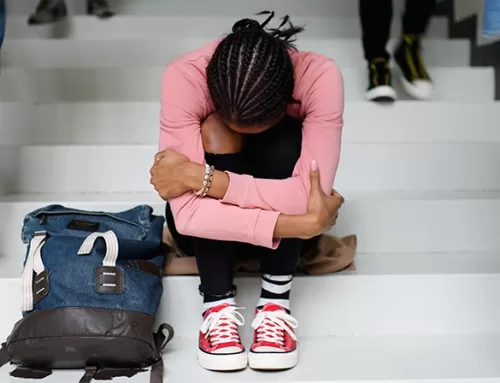
Special to Palmetto Counseling’s Blog | April 2, 2020 12:00 PM EDT
This issue features an article by Maria Cannon
As governments impose increasingly strict measures to control the spread of COVID-19 and enforce social distancing, people everywhere are feeling the pressure. The pandemic is forcing many of us to make sudden, overwhelming adjustments to everyday life, and we don’t really know when things will go back to normal. Coping with all of this is difficult, and it’s completely understandable that you’d feel scared, stressed, or anxious. Fortunately, a little self-care can go a long way to help you feel better! Here are some great ways to tend to your mental health during this time of crisis.
Be Prepared
Preparing your home and family for an emergency situation can help you gain some sense of control amid all this uncertainty. The CDC explains that there are many things you can do to prepare in case someone in your household falls ill or there is a coronavirus outbreak in your community. Assemble a few weeks’ worths of groceries so you will not need to go out, get your prescriptions refilled, and talk to your employer about the possibility of working from home. To prepare your home for a crisis, HomeAdvisor recommends making a disaster plan and assembling a supply kit with essential items you may need in an emergency.
Maintain Your Mental Health and Fitness Routine
As much as possible, try to maintain your regular routine during this trying time. Stick to your normal schedule for getting up, eating, working, exercising, and going to bed. Take the time to cook nutritious meals and remember to build physical activity into your schedule—there are plenty of great ways to work out at home! You can also venture outside for a walk or run, as long as you seek out uncrowded areas and stay at least six feet away from others. Supporting your physical health is an important element of self-care.
Practice Self-Care to Manage Stress
When it comes to your mental well-being, practicing self-care can help you cope with stress and adopt a more positive mindset. Harvard Medical School recommends engaging in relaxation exercises like deep breathing, progressive muscle relaxation, yoga, and meditation to control anxiety throughout the day. If stress is keeping you up at night, try adopting a relaxing evening routine to quiet your mind before hopping into bed.
Social support plays a vital role in our mental well-being, so this is a crucial time to maintain your social connections. Talk to your friends and family over the phone and take advantage of video chat services for virtual get-togethers. Video conferencing can also be useful for accessing professional mental health support. For instance, during this time, Palmetto Counseling Services is offering TeleHealth appointments so clients can speak with therapists from home.
Fill Your Time With Productive Activities
While it’s important to stay informed on the latest COVID-19 developments in your area, try to limit the time you spend consuming upsetting news. Social media can be particularly sensationalistic, fueling anxiety and spreading misinformation. Get off your device for a while and fill your time with fulfilling productive activities. You could update your resume, take an online course, create a household budget, or declutter your home!
Practicing your regular hobbies during this crisis can help you retain a sense of normality and keep your mental health in check. This is also a good opportunity to pick up some new skills! Try painting, knitting, coding, cooking, writing, photography—whatever sounds exciting to you. You might just discover a new favorite hobby!
If you’re feeling overwhelmed by the state of the world right now, just remember, this is temporary. Find ways to support your health, manage stress, and maintain a positive mood as you learn to cope during this trying time. While it may take some time, things will eventually return to normal!
About the Author
Maria Cannon believes we’re never too young to dedicate ourselves to a hobby. She created HobbyJr to encourage young people to find a hobby they love. Maria has suffered from depression and anxiety for years. Her hobbies include gardening, quilting, sewing, and knitting–play a major role in maintaining her mental health.
Do you have an article on mental health, addiction, substance abuse, mental health advocacy or other important topic you would like to submit?
Let us know if you would like to be featured as a Special Guest Contributor to PCC’s Blog by completing the form on the Contact Us page.




